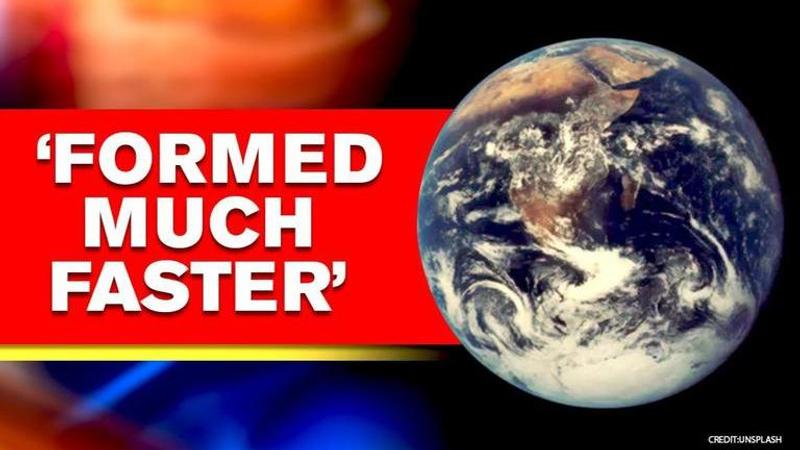Published 12:06 IST, July 26th 2020
Research suggests Earth was formed much faster than previously thought
Research on new insights on both planetary formation and the likelihood of water and life elsewhere n the universe and found that Earth was formed much faster.

In a breakthrough study, researchers have provided new insights on both planetary formation and the likelihood of water and life elsewhere in the universe and found that Earth originally formed much faster than previously thought. According to the study published by the University of Copenhagen, the researchers said that the precursor of our planet, which is the proto-Earth, formed within a time span of approximately five million years.
While earlier it was believed that our planet took tens of millions of years to form, the recent analysis of the iron isotopes found in Earth’s mantle suggests otherwise. The scientists from the University of Copenhagen, Denmark, revealed that in its composition, Earth appears to be unlike other Solar System bodies. The scientists noted that Earth, the Moon, Mars meteorites contain naturally occurring isotopes of iron, however, the Moon and Mars and other meteorites all have similar abundances, however, Earth has significantly less Fe-54 iron isotope.
According to the research, the only type of meteoritic material with a composition similar to Earth is the so-called CI chondrites. The scientists described the dust the fragile type of meteorites as the ‘best equivalent’ to the bulk composition of the solar system. They said that it was the dust like this that combined with gas that was funnelled via a circumstellar accretion disk onto the growing sun.
The scientists said that the process lasted about five million years and our planets were made from material in this disk. They further explained the other meteorites, for example from Mars, tell us that at the beginning the iron isotopic composition of material contributing to the growing Earth was different. Most likely due to thermal processing of dust close to the young sun. As per the study, after the solar system’s first few hundred thousands of years, it became cold enough for unprocessed CI dust from further out in the system to enter the accretion region of the proto-Earth.
Martin Schiller, co-author of the study, said, “This added CI dust overprinted the iron composition in the Earth’s mantle, which is only possible if most of the previous iron was already removed into the core. That is why the core formation must have happened early”.
He added, “If the Earth’s formation was a random process where you just smashed bodies together, you would never be able to compare the iron composition of the Earth to only one type of meteorite. You would get a mixture of everything”.
Planets form through accretion of cosmic dust
Based on the evidence for the theory that planets form through the accretion of cosmic dust, the scientists believe that the same process may occur elsewhere in the universe. This assumption is corroborated by the thousands of exoplanets that astronomers have discovered since the mid-nineties.
Professor Martin Bizzarro, who is Centre Leader and co-author, said, “Now we know that planet formation happens everywhere. That we have generic mechanisms that work and make planetary systems. When we understand these mechanisms in our own solar system, we might make similar inferences about other planetary systems in the galaxy. Including at which point and how often water is accreted”.
He added, “If the theory of early planetary accretion really is correct, water is likely just a by-product of the formation of a planet like the Earth – making the ingredients of life, as we know it, more likely to be found elsewhere in the universe”.
Updated 12:06 IST, July 26th 2020



